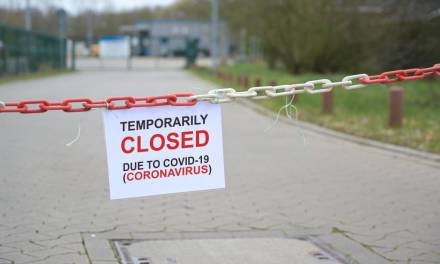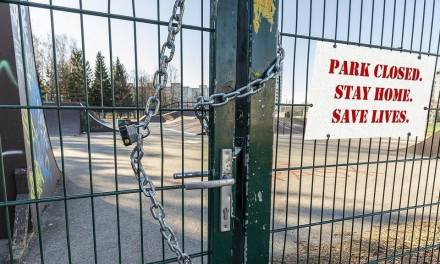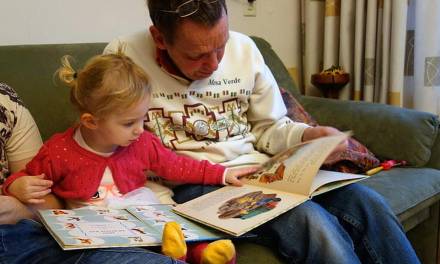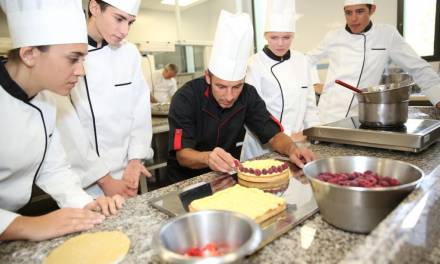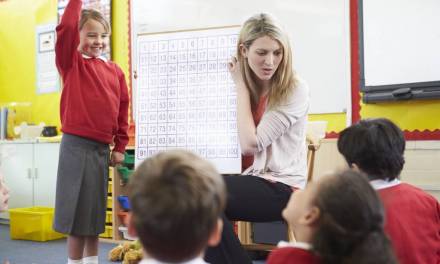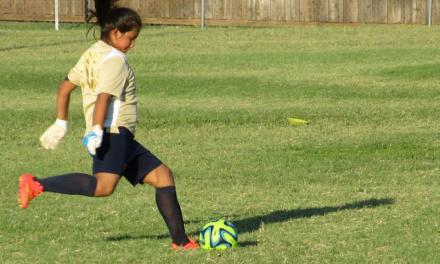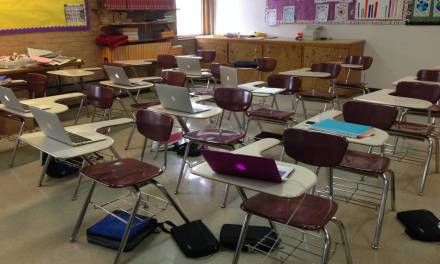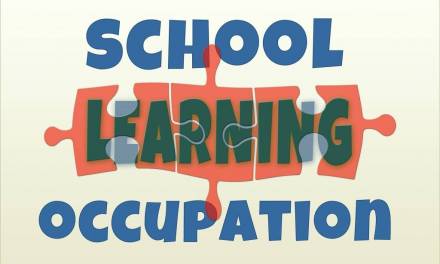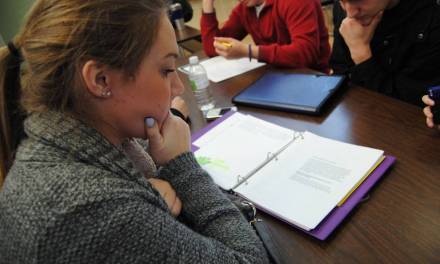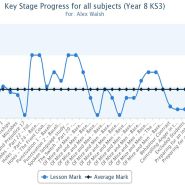
Curriculum
RECOMMENDED
5 reasons using a bridging hybrid model supports educational potential
Reading time: 4 minutes
The education sector needs support more now than ever. As the academic year draws to a close, we take the time to reflect and evaluate. We must recognise that there are thousands of children missing in education and exclusion rates are exceedingly high.
However, we can implement new strategies to overcome certain barriers to support students so they can reach their educational potential. One method that has worked well has been using hybrid approaches or “Bridging” avenues. This could be a certain location on-site where teachers can supervise and monitor attendance, and engagement and ensure students are safeguarded.
Read MoreTransitioning Back to Mainstream Education: Strategies for Success
Reading time: 3 minutes
Transitioning back to mainstream education after a period of home-schooling or alternative provision can be a challenging process for students. They may face academic, social, and emotional adjustments as they adapt to a more structured environment. To facilitate a smooth transition, several strategies can be implemented by educators, parents, and the students themselves.
Read MoreHow to choose the best alternative provision
Reading time: 3 minutes
Selecting the appropriate alternative provision for a student with behavioural issues is a critical decision that can significantly impact their academic success and overall well-being. Alternative provisions are designed to support students who struggle in mainstream education due to various challenges, including behavioural issues. The right alternative setting can offer tailored interventions, a supportive environment, and specialized resources to help these students thrive. Here are key considerations and strategies for choosing the most suitable alternative provision.
Read More3 reasons reading is essential for development
Reading time: 3 minutes
The pandemic caused a massive loss in learning, particularly reading. Pupil’s mental health and well-being were also impacted and improving this will still take time. It’s crucial to support children’s development and aspirations and this can be initiated by implementing fundamental reading skills.
Read MoreThe importance of choosing the right provision for students
Reading time: 3 minutes
EDClass had the privilege of speaking with the designated safeguarding person from Featherstone Academy, Barry Eaton, to discuss their use of the platform, what challenges they had and the benefits that have been evident since implementing the system for their students.
Featherstone Academy has been using the EDClass system since 2015 and the platform has successfully supported and reintegrated students on suspension or who had mental health challenges.
Read MoreSafeguarding students with innovative solutions
Reading time: 5 minutes
Students who are persistently and severely absent need creative and innovative solutions that address their specific needs. How can this be achieved? What support can be put in place to ensure they are safe?
EDClass spoke to international safeguarding consultant, Victoria Raynor, and we discussed safeguarding, absenteeism and driving engagement using a hybrid model.
Read More5 top tips for due diligence on alternative provisions
Reading time: 4 minutes
Conducting due diligence on alternative provisions should be of paramount importance. The provision should prioritise supporting students with specific needs and implementing the most effective support possible.
Integrating an effective alternative provision can be achieved by identifying the specific needs of students and providing an element of support that they feel most comfortable with. This is so their personal development can be prioritised in terms of their well-being and academic growth and potentially lead to a successful reintegration.
Read MoreOnline alternative provision the future of supporting students with behavioural challenges
Reading time: 3 minutes
Online alternative provision (OAP) is a growing trend in education, with many schools and local authorities now offering OAP programs to support students with behavioural problems.
Traditionally schools may resort to isolating students with limited educational resources and support staff resulting in poor progression or personal development. Schools also may have to exclude or suspend students which can be costly and cause additional workload to an already strained workforce.
Read MoreThe benefits of online alternative provision for students with special educational needs
Reading time: 3 minutes
Online alternative provision (OAP) can be a lifeline for students with special educational needs (SEN). It can provide them with the support they need to reach their full potential, in a way that traditional education may not be able to.
There are several benefits to using OAP to support students with SEN. One of the main benefits is that OAP provides a flexible and supportive learning environment. Students can learn at their own pace and in their own time, and they can access support from qualified teachers and other professionals whenever they need it.
Read MoreIntegrating an effective alternative provision
Reading time: 4 minutes
Students with specific needs and requirements might find online alternative provision to be extremely effective and can be highly beneficial for a school also. It is always good to keep government guidance in mind in identifying the right solution, but children’s safety should always be paramount. EDClass interviewed Mark Wrangles and here is what he had to say regarding integrating an effective alternative provision.
Read MoreImplementing supportive structures in alternative provisions to achieve the best possible outcomes
Reading time: 4 minutes
Alternative provisions can be transformative for students and transcend their educational potential if appropriate measures are implemented. It is important to implement the right support for students with specific needs to help them achieve the best possible outcomes.
The overarching desire to empower students to be mindful and improve their confidence can allow them to enhance their learning capabilities and welfare development. EDClass was fortunate to discuss with Jackie Beere OBE alternative provisions, curriculum and the reintegration of students.
Read MoreHow impactful an online alternative provision can be for local authorities
Reading time: 5 minutes
Local authorities play an important role in supplying effective education for children, but the right support must be supplied, at the right place, and at the right time. EDClass spoke to Councillor Maroof Raouf, Deputy Chair of the Education, Children and Families Policy Committee at Sheffield City Council and he stated:
“A blended learning approach is something we aware of and we are looking at the growing options available to schools. It’s just ensuring that students are being put in an environment that is conducive to learning.”
Low on school budget? Here’s why an online alternative provision can help
Reading time: 3 minutes
Budgeting of schools has always been an issue in the country. Recently, more and more schools are facing individual school budget exclusions. Schools have had to juggle their resource allocation impacting the quality of education delivered to students. With the quality being compromised, the students, as well as the teachers, suffer in the long run. These budget exclusions impact the future of the children. Hence, schools and concerned authorities need to decide on an alternative solution to make up for the compromised levels of education.
All of these school budgets result from cost savings and efficiencies. There are constant budget pressures, and over seventy per cent of the school expenses go to staffing and instruction. However, some creative solutions need to be devised so that these school budget reductions don’t negatively affect the student’s education and the school’s atmosphere.
Read MoreWhat challenges do we face in alternative provisions?
Reading time: 4 minutes
One of the greatest issues facing all areas of education is funding and the stretch that is being placed on school budgets at all levels.
Many alternative provisions do not receive direct funding from the DfE and rely on daily rates paid directly by schools as their primary source of funding.
School budgets are being stretched more than they have been for years and we are faced with a situation where school leaders will be forced to make some difficult decisions. We may see that referrals to alternative provisions may be reprioritised within existing budgets.
As we move to a post-pandemic world we are all facing challenges across all areas of education. For many students, remote learning has worked well and they have engaged in education within a calm, purposeful environment with adequate IT access which does not have to be shared. But, this has not been the experience for many students within alternative provisions and those at risk of being referred.
Read MoreImpact on alternative approaches for alternative provisions
Reading time: 3 minutes
The potential harm exclusions may do to a school’s finances and image should only be used as a last option. This exemplifies the need for alternate provisions to prevent the exclusion of children from educational programmes.
The employment of critical workers to provide kids with assistance for their personal development and to communicate with their parents or other caretakers about the student’s academic progress and how well they are doing.
Parents welcome this assistance and gain from being able to praise and understand how to help with their children’s behaviour, which is a win-win situation for everyone involved.
Impact of alternative approaches for alternative provisions
The provision of alternative schools is an integral component of our education system that is constantly being expanded. It is estimated that around 45,000 students are taught in alternative provision schools annually; this number does not seem to be decreasing, even though there is generally an underlying logic of inclusion
Read MoreGovernment shift improves education for 22/23?
Reading time: 4 minutes
Following the recent shake-up within the UK government, the impact it could have on the education sector could be massive. What does this mean for the education sector, alternative provisions and what needs to be done to improve standards for the 2022/23 academic year?
Prime Minister Boris Johnson recently announced his resignation but will remain as caretaker PM until a new leader has been chosen. Following several candidates vying for the position, it now looks as though “either Rishi Sunak or Liz Truss will become the UK’s next prime minister”.– BBC
Read MoreAlternative provisions – how to make them positive
Reading time: 3 minutes
Alternative provisions are highly important within the education system. What should APs now look like and what should be implemented?
An alternative provision effectively provides students education who cannot make it into mainstream education for whatever reason. APs can be situated in a variety of locations and can also be online. According to statistics:
“It is estimated that there are at least 32,083 pupils educated across at least 761 alternative provision settings in England.”
Read MoreHow can we make LGBTQ+ students feel safer in education?
Reading time: 4 minutes
In the past 20 years or so, we’ve become more and more aware of the different types of identities in the LGBTQ community, how can we make them feel safer in education?
Read More6th Day Provision: The Benefits Of Getting It Right
Reading time: 4 minutesStudents absent from public school without reasonable justification legally...
Read MoreWhy alternative provision can help SEND learners
Reading time: 3 minutes
Students with special educational needs deserve an equal chance at education and alternative provision can be a viable option for them.
Read MoreHow can Online Learning be Beneficial?
Reading time: 3 minutes
Schools in the UK have reopened and face-to-face teaching is returning to normal. Following lessons learnt from lockdown, online learning can now work effectively in a combination with mainstream education.
Read More5 ways alternative provision can help your pupils
Reading time: 3 minutes
Alternative provision can provide multiple ways to support students, if they are struggling, and help them achieve their educational goals.
Read MoreOnline assessments with EDClass can boost your education
Reading time: 3 minutes
Assessments with EDClass allow you to develop as you advance through your learning pathway with our bespoke methods.
Read MoreOfsted reveals impact of school closures
Reading time: 2 minutes
School closures severely impacted most children with their learning, Ofsted has revealed.
The report findings showed that some children have gone significantly back with their social skills, while others have lost their “stamina” for reading.
Schools were closed to most students in March. This blog post explains.
Read MoreLockdown in England: schools to stay open
Reading time: 3 minutes
A second national lockdown has been announced in England with one crucial difference: schools to stay open.
The Prime Minister, Boris Johnson, said on Saturday: “Our senior clinicians still advise that school is the best place for children to be, we cannot let this virus to damage our children’s future any more than it already has.”
However both regional mayors across England and senior members of the Conservative party have criticised the plans. What are your thoughts? Let us know in the comments below.
Read MoreCoronavirus catch up premium – update
Reading time: 3 minutes
This summer, the Government announced a catch-up premium fund to help students catch up.
According to the Department for Education: “Those from the most vulnerable and disadvantaged backgrounds will be among those hardest hit. The aggregate impact of lost time in education will be substantial, and the scale of the challenge.”
Updates involving the payment of this fund was confirmed this week. This blog post takes a look at these updates.
Read MoreHow can you continue to teach if a second lockdown hits?
Reading time: 4 minutes
The Government has announced new rules to prevent the spread of coronavirus this week – and a second lockdown has not been ruled out.
The guidance for schools remain unchanged but schools should have a contingency plan in place if remote learning needs to be introduced.
This blog post talks you through the rule changes, the latest guidance and how your school should prepare for a second lockdown.
Read MoreUK could be hit by lockdown in October half-term
Reading time: 2 minutes
UK Scientists have a proposed a two-week national lockdown to take place during October half-term, according to reports.
A the R number (rate of infection) continues to rise around the UK.
The timing of this lockdown would be designed to cause minimal disruption to schools. What would this mean for schools and do you have a contingency plan? This blog post is here to help.
Read MoreCatch-up for low-level numeracy and literacy
Reading time: 2 minutes
Catch-up learning is the order of the day – with students three months behind on learning, and some students have fallen up to 12 months behind where they should be.
Literacy and numeracy are essential skills for everyday life in adulthood – this means it is critical that these skills are taught as a matter of urgency.
But how can catch-up learning be supported in core subjects? This blog post explains.
Read MoreVirtual assemblies or notices
Reading time: 2 minutes
Need to make an announcement to your entire school? Under current guidance, whole school assemblies are unwise under the new bubble system.
It could mean virtual assemblies are the new normal – but may not have been considered.
This blog post takes a look at how you can do assemblies and make announcements virtually.
Read MoreHaving a positive alternative provision where students are learning
Reading time: 3 minutes
A positive alternative provision provides students with meaningful learning activities with meaningful learning activities which improves self esteem, engagement and subsequently quality of life and their relationship with those around them.
A positive alternative provision backs EDClass’ ethos of education for all. By providing a one-to-one support with a person or through a system they like, they are more likely to engage in education, learn and develop.
This blog post takes a look at the benefits of having a positive alternative provision where students are learning.
Read MoreKnowing how far your students are behind
Reading time: 2 minutes
Knowing how far your students are behind is essential – as you look to install the most appropriate catch up for students.
Unless catch-up lessons are effective, researchers predict a 3% loss in future annual earnings for pupils caught up in the pandemic.
This blog post explains how identify how far your students are behind and what to do about it.
Read MoreMissed safeguarding issues
Reading time: 3 minutes
“It just feels like nobody cares about us”, paediatrician Sarah Cockman had been told by parents and children on visits to B&Bs where homeless families had been staying. From bed-wetting to anxiety to leering men on doorsteps missed safeguarding issues have caused great concern during 2020.
Teachers have been told to expect a “tsunami of safeguarding concerns” when schools return this week.
The horrendous situation for families has been compounded during lockdown. The impact of inequality has exploited young people. EDBlog takes a look at missed safeguarding issues and how communities can work together to resolve them.
Read MoreCatch up delivery and sessions for missed learning
Reading time: 2 minutes
Catch up delivery is essential for your students, with teachers estimating that students are on average three months behind in their learning.
The findings by the National Foundation for Educational Research (NFER) and the Nuffield Foundation has said that almost all teachers surveyed believe children are further behind where they expect them to be in their learning.
Teachers estimate that nearly half of all children (44%) will need intensive catch-up support, particularly children in the most deprive areas and from BAME backgrounds.
What should your plan be for catch up delivery? This blog post explains.
Read MorePersonalised learning is focused study here to stay
Reading time: 2 minutes
“Even I saw the massive value of active, inclusive and personalised learning,” says Hilary Moriarty a teacher who experienced e-learning for the first time in 2020.
Personalised learning has a multitude of benefits for students – not only has it come to the aid of students in both retention and learning, but if done effectively they will also appreciate what they have learnt.
Virtual classrooms have become a buzzword in coronavirus times. If done effectively, it can provide a personalised learning touch too. With schools returning in September, we take a look at the elements of virtual learning here to stay.
Read MoreAlternative provision while excluded: all you need to know
Reading time: 5 minutes
Alternative provision while excluded is education and support which should be provided to children who are not able to attend school.
According to the Government: “Alternative provision is too often seen as a forgotten part of the education system, sidelined and stigmatised as somewhere only the very worst behaved pupils go. All pupils deserve high quality education, and while this is often the case, too many pupils are failed by the system and they are not receiving the education that they deserve.“
It is a legal requirement that alternative provision must be arranged for an excluded child from the sixth day of their exclusion from mainstream education (sixth day provision). But not every child in alternative provision has been excluded. This blog post is all you need to know about alternative provision while excluded.
Read MoreThe creative shift towards online e-learning
Reading time: 3 minutes
“A huge population is shifting towards a creative and innovative mode of education or learning: known as online e-learning” reports BM Magazine. “Gone are the days when the only mode of education for a student was to attend the physical classes and institutions.”
Electronic learning refers to the concept of attending classes and/or gaining knowledge over the internet. Software available enhances and complements the idea of the classroom via online means.
Irrespective of time zone or location via e-learning you still have access to your class.
But how does online e-learning benefit classes and why does a blended learning strategy improve both the pupil and the school? This blog post explains.
Read MoreWhy live teaching is better than email handouts
Reading time: 3 minutes
The coronavirus crisis has taught the world that there are many ways to teach classes online: online live teaching means students and teachers have many of the benefits of classroom learning.
Although senior leaders may be able to think of easy solutions to deliver live lectures, by taking a step back and thinking of all the tools at their disposal means they can implement an e-learning solution which benefits all learners.
This blog post explains why live teaching is a fundamental part of e-learning and how collaborating tools benefits all users.
Read More‘Invaluable’ impact of EDClass during lockdown
Reading time: 3 minutes
Since the start of lockdown, schools have worked tirelessly to provide education for your students via EDClass.
EDClass has been used by many schools in order so that education can continue for all pupils even when schools are closed.
Schools up and down the UK are using our provision. Read this blog post to hear the thoughts of two: the Sheffield Inclusion Centre in South Yorkshire and Shenley Brooke End School in Milton Keynes.
Read MoreHome education is “not sustainable, fair or workable”
Reading time: 3 minutes
Home education in it’s current form isn’t working. A report on the BBC this morning has told the story of parents being reduced to tears as they try to balance work with educating their children.
EDBlog has recently reported on the rise in mental health pressure amongst young people, but it is also having a significant effect on parents.
This latest campaign says in the event of future lockdowns “a plan must ensure that the learning and wellbeing of all children are prioritised, wherever circumstances they live in.”
Read MoreWhy distance learning is here to stay
Reading time: 2 minutes
The culturally ingrained education models has been hugely disrupted by the coronavirus pandemic – with a huge shift made to distance learning.
Though at present, many university students are unhappy with the speed and quality of the changes, many experts believe that distance learning is here to stay.
But how is it likely to look and what will it mean for students, teachers and parents? This blog post explains.
Read MoreInside the heart of EDArcade
Reading time: 3 minutes
EDArcade can play a crucial role in saving children’s education.
Our aim is to pioneer reengagement for students in education. This report has suggested that up to 20% of pupils are currently undertaking less than one hour of schoolwork per day.
Working with you, we can support student catch up; help pupils to understand tough to teach topics, improve confidence and enjoy learning again.
Read MoreWhy virtual classrooms benefit schools and providers long-term
Reading time: 3 minutes
Virtual classrooms are the new normal in higher education.
Many degrees are now being offered as fully online or via blended learning. In secondary schools blended learning looks set to be used into next year in parts of the UK.
Given the seemingly unstoppable growth of the virtual classroom, we take a look at the long-term benefit for both the school and students.
Read MoreSet up alternative provision for non-attenders
Reading time: 3 minutes
Alternative provision can be defined as education arranged outside of mainstream schools, by the school or local authority.
Schools can use such provision to try to prevent exclusions or to re-engage students in education.
Some students spend a significant proportion of their week away from their school or unit.
But why are they ideal for non-attenders?
Read MoreVirtual learning is more than a presentation
Reading time: 3 minutes
The need to provide virtual learning solutions while students have been confined to their own home.
With Ofsted announcing ‘no expectations on learning‘ during the pandemic, some schools are using basic learning platforms to educate their students.
But what can be done to make sure students are more engaged in education?
Read MoreGovernment announces pupil catch up plans
Reading time: 3 minutes
The Government has issued a £1 billion fund in order to help children in England catch up on lost education.
Two funds have been announced: one for disadvantaged pupils and one for all pupil groups.
Estimations are that pupils have been left 12 months behind following the coronavirus pandemic. So the catch up plans have been welcomed, but what do they mean for students?
Read MoreWhy is game-based learning important at home?
Reading time: 2 minutes
Game Based Learning plays an important role in teaching and learning.
Gaming creates a dynamic that can inspire learners to develop skills and build an emotion connection to learning and subject matter.
Why is it important to engage with learning at home and how can games based learning help achieve this?
Read MoreBenefits of a secure classroom
Reading time: 2 minutes
Children could be as much as 12 months behind in their development when schools resume. You can help them catch up quicker with the support of a secure classroom.
A virtual secure classroom means students can continue to be educated even when they cannot attending mainstream classes.
But what is a secure classroom and how can it help your school and your students?
Read MoreHow to reach the masses if schools aren’t back
Reading time: 2 minutes
From 15 June, secondary schools will be able to provide pupils with face-to-face support.
The Government has released guidelines for schools. Schools will have to adhere to measures including reduced class sizes and social distancing.
If your school has to work with decreased class sizes how do you provide education for the masses? And how does remote learning have a role to play in future?
Read More#HigherEducationDay: revolution could start with online learning
Reading time: 2 minutes
The coronavirus pandemic has affected education around the world. Online learning has been used in higher education in the short term, and experts have suggested this could be the start of something new.
Close to 90% of students worldwide have been deprived of education in recent months.
Many universities have transitioned to online learning. But could it be here to stay?
Read MoreWhat are the benefits of blended learning?
Reading time: 2 minutes
In education settings it is important to get the balance right. Blended learning is an approach to education that combines online educational materials and online interaction with traditional classroom-based methods.
As society evolves, e-learning is taking a more central position in our educational structure. This is no clearer to see that during the coronavirus pandemic when education temporarily moved online.
But why is a blended learning approach so important and what benefits can e-learning bring?
Read MoreOfsted declares “no expectation on learning”
Reading time: 2 minutes
Ofsted has told a panel of MP’s that there is “no expectation on learning” during the coronavirus pandemic.
In the latest Education Select Committee dialog, Amanda Spielman echoed comments made by the Education Minister last week that safeguarding vulnerable children was priority.
She also said she was concerned for the future of children “without motivations”.
Read MoreWhat is digital poverty?
Reading time: 3 minutes
Digital poverty is a growing problem in the United Kingdom that the coronavirus pandemic has exposed. In 2019, then-Labour Leader Jeremy Corbyn stated, “The internet has become such a central part of our lives. What was once a luxury is now an essential utility.”
Ultimately, a research report by the Low Income Tax Reform Group found that ‘a significant proportion of the UK is “digitally excluded” either through not having internet access or because of low levels of digital literacy. The drive for digitalisation of government services could reinforce the social exclusion of a sizeable segment of the population. This could lead to wider impacts in the medium and long term.’
Read MoreEducation Minister: Vulnerable children are ‘priority’
Reading time: 4 minutes
The Education Minister has hit back at claims more can be done to ensure vulnerable children receive an education.
It is widely reported in the media that only a minority of vulnerable children expected to still attend school during lockdown have been doing so. Further concern has been raised that children required to do home-learning may have vulnerabilities which have not been considered.
At a Government briefing on Sunday, Education Secretary Gavin Williamson showed appreciation to staff who had kept schools and nurseries open over the Easter holidays to protect vulnerable children. He also pledged laptops and tablets, as well as additional funding to charities, to help ensure children can receive an online education as well as have greater safeguarding means in their own homes.
On Wednesday, the Education Minister was called to explain decisions and guidance to other MPs via an online Education Select Committee Meeting. Here is what Vicky Ford, had to say.
Read MoreWhy now is the best time to learn about climate change
Reading time: 2 minutes
Among many things that have changed in the last month has been the impact the coronavirus and the world economy has had on climate change.
On 1 April it was announced that the COP26 climate summit, set to be attended by world leaders, was to be rescheduled.
But why is this the best time to learn about climate change?
Read MoreWhy you should choose EDLounge for tracking and safeguarding
Reading time: 3 minutes
By using EDLounge you have access to a comprehensive school improvement platform and learning environment. But there are two things that above others makes EDLounge stand out: tracking and safeguarding.
Ultimately, our system is designed in order to help you to streamline practices, raise standards and increase whole school outcomes.
EDLounge’s advanced tracking system means pupil performance can be monitored closely to improve student outcomes. But how does it work? And how is tracking balanced with safeguarding to help student’s best interests are achieved?
Read MoreStudent grades: the challenge of ranking students to predict grades
Reading time: 2 minutes
Information is emerging about the methodology for awarding student grades for this academic year.
Grades look set to be informed by your current data and an element of student ranking within your subject. Grades will be moderated against prior KS2 data, prior school attainment data and national distribution of grades.
The process brings about many challenges – not least the threat of bias. But what should be taken into account to ensure a fair and justifiable approach.
Read MoreWorld Storytelling Day: how to embrace reading during school closures
Reading time: < 1 minute
Today (20 March) is World Storytelling Day celebrated around the world. With school closures coming into effect on Friday, children can embrace reading to prevent feeling bored over the period.
www.workingmums.co.uk have said: “Planning activities for kids at home is a way to break up the day. It might include time for some chores, a daily walk, reading time and board games.”
But how should you go about embracing reading?
Read MoreTop 10 educational games to keep children occupied
Reading time: 2 minutes
Many parents are unsure how to entertain their children following school closures announced on Wednesday.
The decision has crated an uncertain time for parents and pupils. Many parents do not want education to cease.
But how should you keep children occupied during the period, and how can you ensure education continues? This blog post is the top 10 educational games to keep children occupied.
Read MoreWhy maths is essential from a very young age
Reading time: 3 minutes
Maths is an essential in everyday life. We use mathematics concepts each day in our lives (often without realising). The subject governs everything around us and without a good understand a person could encounter difficult problems in life.
There is a reason why maths is one of the first subjects we learn at school.
This blog post explains the reasons why maths is essential and you can use online learning to improve your ability.
Read MoreCoronavirus: what the Government’s update means for schools
Reading time: 3 minutes
The government has updated its advice on schools for when the coronavirus hits the UK more significantly.
Last week we informed you that a number of UK schools had closed on a precautionary measure after coronavirus cases were identified locally. We also reported that schools are seen as a social hub of the community, and can therefore be prime location for the epidemic to spread.
Today, the UK government – along with the parliaments of Scotland, Wales and Northern Ireland – have announced a coronavirus action plan, to detail how the country will deal with the virus.
But what does the plan entail and how will it affect schools?
Safeguarding: how to ensure your child is safeguarded at home
Reading time: 4 minutes
According to the government’s ‘Working Together to Safeguard Children‘ white paper: nothing is more important than children’s welfare.
The system is designed to respond to the needs and interests of children and families, and how they work needs to run in partnership with other interested parties.
Schools play an essential role in protecting children from abuse, and with regular contact with young people they are in a strong position to identify signs of abuse and neglect. But with events such as severe flood and coronavirus affecting the country, increasingly schools are turning to home learning to ensure children still receive an education.
But how can the school ensure pupils are still safeguarded whilst off-site?
Read MoreWhen is the best time to revise?
Reading time: 3 minutes
To revise is a crucial skill in preparing for exams. As end of year exams edge clearly, revision will form a crucial part of your strategy of best performing for an exam.
But when is the best time to revise? Is it during the day? Is it during the night?
Read MoreNight school proposal: achieve your potential through online learning
Reading time: 3 minutes
Part time learning was once accessed by tens of thousands of adults through night schools – but due to funding cuts, many institutions have had to close. Following Baroness Alison Wolf’s appointment as skills policy adviser to the prime minister, they could be set for a revival.
Flexible learning is an essential option in education with a large number of people hoping to improve job and career prospects through further training. However, night school cutbacks have also coincided with an increase in online learning.
What are the benefits of night schools and online learning? And why are night schools set to be revived?
Read MoreIlliteracy in secondary education – what can you do to help?
Reading time: 2 minutes
In 2016, the OECD examined the literacy rates of 16- to 19-year-olds in 23 OECD countries and came to a startling conclusion – England occupied the bottom spot with more than 1 in 5 young adults having a low level of literacy.
Read More5 simple strategies…to encourage students to use their local library
Reading time: 3 minutes
With the advances in technology and the capabilities that the internet has introduced, many traditional learning tools and resources have started to decrease in popularity.
As students prefer to do online research from the comfort of their room, there is a noticeable difference in approach to studying and research methods compared to 20 years ago.
Read MoreV Certs – will they bridge the skills gap for employers?
Reading time: 2 minutes
V Certs are the most recent vocational qualification open to students who are 14 – 16 years old but could they really provide a solution for the skills gap in the UK?
Read More5 potential career paths…for English students
Reading time: 3 minutes
“Are you going to be a teacher when you get older?” is a question that many English students will hear during their time at university.
Whilst it is true that a significant number of English students love the idea of teaching after completing their degree (and there is nothing wrong with that – this is an education blog after all!), there is a variety of potential career paths for English students.
Read MoreWhy your school needs a craft club
Reading time: 2 minutes
Crafting has all kinds of mental and educational benefits. So if you want to improve your students’ behaviour, wellbeing and more, it’s time to start a craft club.
You can hardly have missed the rise in popularity of traditional activities – we have the Great British Sewing Bee, Channel 4 paying millions to take over the broadcasting of a baking show, and you probably know at least one person who knits or crochets. Crafting is big news.
Read MoreHow to set up a nature club at your school
Reading time: 3 minutes
Wildlife is good for us, but how do we introduce more of it into students’ lives? We look at how to set up a nature club.
Recently we discussed how nature can have a positive impact on academic performance. Just 20 minutes in a natural setting can improve kids’ mood, perception and cognitive ability.
Read MoreAlternative provision for school refusers
Reading time: 2 minutes
Whilst the dangers of ‘off-rolling’ or ignoring/marginalising pupils by moving them to poorly managed alternative provision are real, when it is properly managed, alternative provision can be a very useful tool in encouraging school refusers to re-engage with their education.
Read More5 simple strategies…to help manage assignments
Reading time: 2 minutes
Streamlining assignment management is an end goal for any teacher, however some find it far easier than others.
So, for those who don’t find it such a simple task, here are a few suggestions for managing assignments effectively.
Read MoreSupporting ESOL students in the classroom
Reading time: 3 minutes
Throughout UK schools, there are more than 300 languages spoken as a first language.
While proportionally ESOL students account for just under 7% of pupils, in inner cities this percentage can often be as high as 75%, as is seen in various schools in London.
Read More5 Simple strategies…to encourage reading for pleasure
Reading time: 3 minutes
Reading for pleasure is starting to feel like a lost art. It is something that every primary school student is encouraged to do but they often find other pastimes more appealing as they grow up.
Whether this is due to lack of motivation at home or at school is often down to individual cases. Reading is an important tool for every child and adult, as it keeps the imagination active and also helps to further learning in general – deepening cognitive ability.
Read MoreHow games can help increase numeracy skills
Reading time: 2 minutes
Numeracy – it’s often not the easiest of subjects to teach, even when you have all the passion in the world.
Engaging children in numbers can often feel one of the toughest of all teaching nuts to crack. If this sounds familiar, games could well present the answer.
Read MoreHow to make maths more fun
Reading time: 2 minutes
Maths + Fun = An impossible equation? Not necessarily.
Whether you’re a teacher or parent, attempting to engage an unwilling child in maths can sometimes be difficult.
Here are some simple and effective ways to make mathematics fun (for motivated kids and learning that sticks).
Read MoreUsing traditional and video games to boost literacy skills
Reading time: 3 minutes
Games have been employed in schools, in one form or another, for decades.
Yet today we’re only just coming to realise the true potential power of gaming, and beginning to understand that the advantages go beyond convenience.
Here we inspect just how powerful a resource games can be for boosting literacy skills.
Read MoreWill handwriting ever become obsolete?
Reading time: 2 minutes
You may have heard the news. Apparently handwriting is soon to become obsolete.
However, for those of us who are dedicated to the idea of writing being indispensable, comfort can be taken in the fact that the death of writing (and reading) was discussed as early as 1987 and then promptly rejected by commentators.
Read More5 ways to help teach students with dyslexia
Reading time: 2 minutes
More than 1.2 million children in the UK have dyslexia, a disability which results in difficulty reading and understanding the meaning of the words in front of them. Many children who have dyslexia have said that the words they see do not stay still. Instead, they move around the page, affecting their ability to read them.
Unsurprisingly, dyslexic students can find themselves falling behind others in the class, resulting in performance issues.
Read MoreUsing Sport to Boost Numeracy Skills
Reading time: 2 minutes
How does one go about raising the numeracy skills in youth who, for a great majority, want little to nothing to do with math exercises?
The solution may be found through an integration of sports and numeracy skills.
Read More5 Ways to Motivate Your Students to do Their Homework
Reading time: 2 minutes
Homework is something that the vast majority of student’s dread, and it is the least looked forward to at the end of the day. It can be equally frustrating for teachers as well, after all they want nothing more than to inspire students, and it is not often that homework does this.
However, there are ways that you can make homework that much more interesting for students, and these five tips will help you to discover how.
Read MoreThe importance of functional skills in 14-19 year-olds
Reading time: 2 minutes
Since the 14-19 reform act, there has been a great deal of change in the curriculum in the UK. Now, our education system provides our youth with training in skills that are going to be useful in life and help them build up knowledge to help them succeed.
It was designed to help encourage more and more young people to continue into higher education. However, not every young individual wants to go to university, so the 14-19 reforms provide alternative further education paths for these individuals.
Read MoreAlternative Provisions
Reading time: 2 minutes
With the changes to funding over the last few years, it is increasingly likely that schools will want to handle alternative provisions in-house to avoid the cost of supporting pupils being taught elsewhere.
There are various ways to address the issues within school and we will cover some of those today.
Read MoreStrategies to Educate School Refusers
Reading time: 3 minutes
With the statutory requirement to report attendance figures comes the additional need to look at why pupils aren’t attending. School refusers make up some of these statistics and this covers those who simply don’t want to go to school or those who are phobic and become incredibly anxious when attending is suggested.
It’s important to get to the centre of why a child refuses to attend, it’s also crucial to put support in place through educational strategies.
Read MoreIn-House Alternative Provisions
Reading time: 3 minutes
For pupils with emotional and behavioural issues who find they are at threat of exclusion from their school, there are now a number of in-house alternative provisions which have been set up. These look to work with pupils and parents as a support mechanism without the need to move the pupil offsite.
The initial goal is to pinpoint the central problems if not already known and to then work over a period of time with the end target being the move back into their previous ‘mainstream’ year group.
Read MoreIpsative Feedback and Assessment
Reading time: 2 minutes
There is such controversy surrounding assessment in the current educational climate that it is hard to see the wood for the trees. Inspectors will expect each student to know their own targets and current levels of progress but many teachers find that this can demotivate those whose progress is perhaps at a lower level than that of their classmates.
Competition within a class can be motivational for those at the top but for those at the bottom it has the opposite effect. One method that can help to combat this issue is using an ipsative form of assessment and feedback.
Read MoreInterventions to Improve Behaviour
Reading time: 2 minutes
Research suggests that effective behavioural interventions can have a direct and significant effect on a student’s academic achievement. So how do you make sure your interventions are effective? Targeted interventions that address the specific issues of individual students are the most effective so the first step is to identify the needs of the student.
Read MoreImproving Attainment of Low Numeracy Pupils
Reading time: 3 minutes
Not having numeracy skills can have a long lasting and damaging effect on life as an adult. Lack of numeracy can affect behaviour, employment prospects, lifeskills and the overall attitude to the future.
To minimise the risk of this happening after a pupil leaves school, all issues with regards to numeracy must be addressed as early as possible to help a low numeracy child become numerate.
Read MoreRaising Self-Esteem in Students with Low Literacy and Numeracy
Reading time: 2 minutes
Students who struggle with literacy or numeracy barriers can often have low self-esteem as they become more and more aware of their differences to their classmates who do not have the same struggles. This lack of self-esteem then becomes a barrier to them overcoming their difficulties, as they lose the will to try new tasks or commit themselves to activities that challenge them.
Raising the self-esteem of someone who has a genuine barrier is tricky, as their doubts have a basis in truth. You need to avoid false praise or platitudes and instead target things they really are good at to begin with. Build up their basic level of confidence and some of this will transfer onto their academic work.
Read MoreWorld Book Night – April 23rd
Reading time: < 1 minute
World Book Night is an annual celebration of reading and books that takes place on 23 April. It sees passionate volunteers give out hundreds of thousands of books in their communities to share their love of reading with people who don’t read regularly or own books. World Book Night is run by The Reading Agency, a national charity that inspires people to become confident and enthusiastic readers to help give them an equal chance in life. World Book Night
Read MoreDo Detentions Work?
Reading time: 2 minutes
Detentions. Often they can feel like they punish the staff more than they punish the student. When you ask interviewees why they wanted to become a teacher, it is unlikely that any of them replied that they looked forward to the chance of staying late after school to supervise the very students who had made their day miserable to begin with.
So why do schools carry on with them? Because they can, when used correctly, work.
Read MoreRaising Aspiration with Parental Engagement
Reading time: 2 minutes
When schools are looking to raise aspiration, parental power is an invaluable and powerful way to enhance and introduce enthusiasm and motivation.
Success is seen at its highest when schools and parents work together as a partnership, but whilst almost all schools involve parents in activities at the school itself, this is parental involvement rather than engagement and does not directly affect achievement as opposed to direct parental engagement which increases aspiration for all the family.
Read MoreWays to Raise Engagement in English
Reading time: 2 minutes
English is often a love it or hate it subject. For those pupils who enjoy great literature and poetry, they look forward to exploring the pages of the texts they are studying or letting loose their creative imagination in writing fiction which explores their thoughts and enables talent to be seen.
For those who do not enjoy English, it can feel like a dull experience they are forced to attend, either because they can’t relate the work they are asked to complete to any part of real life or because of low literacy levels and any associated learning difficulties.
Read MoreImproving the Attainment of Low Literacy Pupils
Reading time: 2 minutes
Those who perform poorly at school overall are the most likely to have poor reading and writing skills. Socio-economics play a large role in the profile of a pupil with low literacy along with gender.
It has been evidenced that boys are twice as likely as girls to have low literacy skills at the point of leaving school and this barrier can really hold those affected back when looking at career and lifestyle choices.
Read MoreInnovative Ways to Encourage Students to do Homework
Reading time: 2 minutes
The success of a lesson can often depend on how many of the class have completed their previously set homework. If some haven’t attempted any or all of it, they are at an instant disadvantage in their knowledge of the activities ahead and they lack the achieving of set targets and goals.
The solution is to try to find innovative ways to encourage all the class to complete their homework on time. This way they stay up to date, their learning increases and they feel comfortable with tackling the next steps of the curriculum.
Read More5 Simple Strategies…for Whole School Approaches to Reduce Exclusions
Reading time: 2 minutes
Creating safe spaces, perhaps manned by learning mentors, empathetic staff members or even older members of the student cohort can provide a place that feels safe and supportive for students who are about to ‘blow’.
A system can be agreed in advance with students likely to use such a resource to allow them to exit a lesson or situation that is proving triggering for them, on the understanding that work must be caught up and that consequences exist for the misuse.
Read MoreAvoiding the Need for Exclusion
Reading time: 2 minutes
There is a school of thought that suggests that all behaviour is communication. This may cause you to believe that certain students in your care are communicating, in no uncertain terms, that they do not wish to attend your school!
Anti-social behaviours, bullying, property damage and persistent disruption all communicate quite strongly to you, as a school leader, that you will need to exclude a student either temporarily or permanently in the not so distant future.
Read MoreHighlighting the Importance of English and Maths to Teenagers in Careers Advice
Reading time: 2 minutes
Engaging teenagers in Maths and English can often feel like an uphill struggle – particularly if their levels of numeracy and literacy are low. It’s even more of a challenge to emphasise and convince them then that these are probably the two most important subjects to focus on when planning their career path.
Where being a celebrity is now a very popular answer to ‘what career do you think you want’ and then specific replies being that being either a footballer, model or reality TV star is at the top of the list, there’s a falling perception in some teenagers that Maths and English are of any value.
Read MoreWays to Raise Engagement in Maths
Reading time: 3 minutes
Raising engagement in maths – and in turn attainment – is a major focus of every school curriculum policy. Looking at ways to motivate and enthuse pupils in a subject where some have always struggled isn’t easy.
However, there are ways to stop the jumble of figures being seemingly meaningless both on the page and in real life and to illustrate ways to put together the parts of the jigsaw which makes up the whole subject.
Read MoreImproving attainment for C/D border students
Reading time: 3 minutes
Improving attainment for C/D border students can mean a huge difference to their lives. It can be the difference between being offered a place at their FE college – or not, or it can mean starting an Apprenticeship – or not.
The reasons pupils fall into the C/D sector of a year are varied, but the solution is intervention to look to resolve the issues in the run up to exams as much as possible.
Read MoreWays to tackle bad behaviour in the classroom
Reading time: 2 minutes
Bad behaviour during a lesson is disruptive to all and frustrating for both the teacher and the remaining pupils in the class who want to learn. Persistent disobedience can mean that precious time is spent trying to sort out the issue which then means that the amount of teaching time is greatly reduced.
In turn this can mean increased amounts of homework to ensure the class stays up to speed with the curriculum and adds to their spare time workload when combined with that of other subjects.
Read MoreThe future of maths in schools – are computers the way forward?
Reading time: 3 minutes
The traditionally taught methods of maths are being challenged by those who feel that the future of the subject should be less about the mechanics of maths and more about the concept of the subject and the practical uses. There are calls for maths to become more about everyday use than currently taught and less and less about the theory behind how the maths works.
In essence, the thoughts are that learning about what algebra is should be replaced completely in the future with how it’s used in everyday scenarios.
Read MoreHow adult learning empowers those who take the leap
Reading time: 3 minutes
Adult learning has evolved over the last two decades. Whilst still the place to learn self-improvement skills such as crafts and languages, the role of adult learning has a strong focus now towards enhancing entry level life skills, improving employability opportunities and all the time instilling self-confidence in each and every learner who steps through the door to sign up for a course.
Read MoreThe Flipped Classroom
Reading time: 3 minutes
The flipped classroom is becoming an increasingly popular teaching method which has developed alongside the use of digital technology as a tool for learning. It is creating a new direction and role change for teachers as they are swapping their position at the front of the classroom to one with a more collaborative and cooperative contributory edge.
Read MoreEffective Summative Feedback
Reading time: 2 minutes
Whilst formative feedback is used as a tool for regular evaluation of achievement or to look at and set up methods to stem the areas where students need to make improvement, summative feedback is just as crucial and should be used in conjunction with formative assessment to give a rounded picture of learning rather than purely on its own.
Summative feedback can be used just as effectively as formative feedback as there are a number of tools and processes for obtaining the data and information regarding the learning which has taken place.
Read MoreSetting Goals and Targets
Reading time: 3 minutes
Evidence of learning is one of the most important benchmarks within teaching. It’s a tool which is part of the whole educative experience for all involved; learner, teacher and perhaps at times the observer. This evidence can be gathered through a range of ways, but the cornerstone of all is the setting of goals and targets.
By undertaking this work at different stages of the term or course; during the scheme of work and lesson planning and at set points as an evaluation tool, it is a way for the future planning of learning.
Read MorePreventing Pupils Becoming NEET
Reading time: 2 minutes
One fifth of all young people aged 16-24 don’t make the leap from school to work, a situation which can quickly become a cycle of failure and despondency.
The long term outlook for this group is one which will affect their wellbeing in a number of ways; their mental and physical health and their poor economic forecast. Typically, these pupils will come from a background of low-income and long standing issues and so there is a need for the best support possible to help this disadvantaged group to achieve as much as possible academically.
Read MoreExtra-Curricular Activities
Reading time: 2 minutes
For some parents – and students – the role and importance of the offering of extra-curricular activities can be difficult to fully convince that they should be taken full use of to enhance the overall learning experience.
The issue of not embracing the opportunity to take part in extra-curricular activities usually stems from the perception that they are a distraction to the pupil from their academic studies.
Read MoreEffective Formative Feedback
Reading time: 2 minutes
Formative feedback or assessment is a crucial part of the teaching mix and is vital for use in working towards a summative assessment situation.
Formative feedback can be carried out in a number of ways which are relevant to the class as a whole or to the goals and targets of an individual but to be particularly effective should be held in a planned and cyclical manner. This way, progress can be shown over set and regular time periods and comparative achievement can be evidenced across the class.
Read More5 Simple Strategies…for an Easy Transition to Person-Centred Planning
Reading time: 2 minutes
As we have seen, the person-centred approach aims to deliver an inclusive method which we believe will be highly beneficial to pupils, parents and teaching staff alike.
This method provides a greater emphasis on pupil involvement, allowing pupils with special educational needs to gain increased control over their learning.
Read MorePerson-Centred Planning
Reading time: 3 minutes
The new school year is always a time of transition and change: new pupils, new staff and renewed energy from the summer break. This year sees more change than usual however, as the much discussed SEN reforms are finally upon us and provision has quite dramatically changed.
Following on from earlier newsletters about what the reforms mean for you, here we will discuss one key aspect of the reforms: the person-centred approach to planning and review.
Read MoreUsing Technology to Engage Hard to Reach Learners
Reading time: 3 minutes
Whilst every year the media applauds those who attain incredible achievements with their GCSE or A level exams, there are many students left in the shadows who are unable to even dream of attaining similar success or may not be interested in attending school.
For many who fall into this category, a disadvantaged background is almost certainly a key element in the issue, there those who require assistance to learn even the most basic literacy and numeracy skills and there are those who become bored because they don’t feel challenged.
Read MoreEDLounge Case Study
Reading time: 2 minutes
The Rodillian Academy and EDLounge came together in September 2013 to look at how we could improve our existing online provision. This needed to meet national guidance on the use of alternative provision and, more importantly, provide high quality, appropriate work for students who were not accessing mainstream education for a fixed period of time.
We have developed a unique package to support students who are out of mainstream education, providing them with appropriate, accessible work that is accessed through a secure online platform.
Read MoreEnglish Literature in the new National Curriculum
Reading time: 2 minutes
The overarching aim for English in the National Curriculum is to promote high standards of language and literacy by equipping pupils with a strong command of the spoken and written word, and to develop their love of literature through widespread reading for enjoyment.
The syllabus for English in the new National Curriculum has been under fire in the last few weeks. This week the OCR draft English Literature syllabus appeared to have dropped US works such as Harper Lee’s To Kill a Mockingbird, John Steiner’s Of Mice and Men and Arthur Miller’s The Crucible.
Read MoreLearning Outside the Classroom
Reading time: 2 minutes
How often do you take lessons outside? The benefits of taking pupils outside the classroom to learn are well documented, with research conducted by Ofsted outlining advantages such as making subjects more vivid and interesting for pupils, enhancing their understanding, and developing pupils’ personal, social and emotional development. (Learning Outside the Classroom, 2008)
Read MoreRepetition for revision
Reading time: 2 minutes
In this month’s issue of ED Journal, we explored a few methods we believed would be beneficial to a pupil’s revision programme. Although the majority of the article focused on technological aspects, the use of certain websites for example, there was one suggestion we included that did not require any kind of technology (although it certainly could be incorporated). I would like to look a little more in-depth at this strategy and the theory behind it.
Read MoreHow should we cater for different learning styles?
Reading time: 2 minutes
I have recently been conducting some research around innovation in education. With ever-advancing technology, there seems to be new ideas cropping up daily which would be fantastic to utilise for education, whether it is in the classroom or for individual study.
Read MoreAre you ready for assessment without levels?
Reading time: 3 minutes
September 2014 sees a major shakeup in the secondary school curriculum and assessment methods – and the indications are that many schools are still not fully prepared.
Admittedly, there has not been a great deal of time. It was only in June last year that the Secretary of State for Education, Michael Gove, dropped his bombshell.
He announced at the NCTL ‘Seizing Success’ conference that the new National Curriculum to be introduced in September 2014 would not involve existing National Curriculum assessment levels.
Read MoreGet Young People Writing
Reading time: 2 minutes
Over the past few weeks there have been several national days and weeks to promote reading, such as World Book Day. There are still more of these to come in the form of International Children’s Book Day (2nd April).
These have been great ways for schools to encourage their pupils to read for pleasure and share their views and opinions of the books they read. This has been achieved in several forms, such as dressing as their favourite book character.
Read MoreSupporting pupils with challenging behaviour
Reading time: 3 minutes
The Ofsted annual report from 2012/13 states that, “…teachers can only teach well, and challenge pupils to do better routinely, if behaviour in class is orderly and attentive.”
This means that even low-level disruption such as incessant chatter, calling out, inattention and other seemingly minor behaviour issues will affect teaching standards in the classroom in general.
Read MoreThe problem with maths
Reading time: 2 minutes
I don’t think anybody would be surprised by the notion that maths is often considered unpopular. Indeed one of the biggest barriers to engagement with maths seems to be the reputation it has in society.
In his book, Rethinking School Mathematics, Andrew Noyes identifies the social barriers pupils experience in regards to maths, and the fact that textbooks’ attempts to connect maths problems to real life situations often fail as “there is a real difference between what many teachers and textbooks perceive to be real-life mathematics and what people experience in their lives”.
Read MoreWorld Book Day 2014
Reading time: 2 minutes
Last month we took a look at how the art of storytelling could be used in the classroom, as inspired by National Storytelling Week.
We have another great reason to look towards the educational opportunities to be found in the world of literature tomorrow in the form of World Book Day. This yearly event is another fantastic initiative to promote a love of reading in both primary and secondary schools: “It’s a celebration of authors, illustrators, books and (most importantly) it’s a celebration of reading.”
Read MoreAssessment without levels
Reading time: 2 minutes
Yesterday the NAHT released their commission on the removal of National Curriculum levels which will come into effect in September. The release of the commission’s report is to “establish an independent commission on ‘assessment without levels’ to consider what lay behind good assessment and to look for examples of good practice already in place or developing in schools.”
Read MoreNational Storytelling Week
Reading time: 2 minutes
“National Storytelling Week is about giving out to all cultures, tales that give a twinkle to the eye, that raise a question in the mind and stories that have survived the brightness and the shadow of man’s imagination.” (Society for Storytelling, 2014)
Read MoreEngagement with Shakespeare
Reading time: 3 minutes
From September 2014, the new National Curriculum will require a greater depth of study of Shakespearean texts. The Telegraph reports:
“All pupils will be required to learn at least two of the Bard’s plays in full between the age of 11 and 14 – up from one at the moment – as part of a wide-ranging plan to drive up education standards.
The move follows criticism of the existing curriculum amid claims pupils can leave school without studying anything more than bite-sized extracts of Shakespeare’s most famous plays such as Hamlet, Macbeth, King Lear, Othello and Romeo and Juliet.” (The Telegraph, July 2013)
Read More5 Strategies to Develop Your Students’ Life & Employment Skills
Reading time: 3 minutes
An article in The Telegraph at the beginning of January identified that 120,888 children are currently at risk of becoming NEETs because they “perform below national averages in the three-Rs” (The Telegraph, Jan 2014).
Statistics from June 2013 show that 15.5% of 16-24 year olds in England were NEETs (DFE, June 2013). With pupils now having to stay in education or training until the age of 17, moving to 18 in 2015, will this prove to be the magical solution for reducing unemployment for young people?
Read MoreReduce The Impact of Low Literacy and Numeracy Issues into KS3
Reading time: 3 minutes
Making the move from primary school to secondary is a daunting experience for many children and, as a result, it is a transition that needs to be as smooth as possible.
The percentage of pupils that received a Level 4 in their KS2 Sats results in reading, spelling and mathematics has risen slightly compared to the 2012 results. However, it is still evident that a ‘significant percentage of pupils are leaving primary school without a sufficient grasp of reading, writing and maths’, which adds more stress and strain for all the staff involved (The Guardian, September 2013).
Read MorePreparing Your Pupils For The Next Generation BTECs
Reading time: 3 minutes
That old saying, ‘if it looks like a duck, walks like a duck and quacks like a duck then it is a duck’, is also true of the Next Generation BTECs. They remain similar to the ‘old’ BTECs in that much of the content is still the same and the learner outcomes are similar.
These revamped Level 2 BTECs are therefore very much still BTECs with all the flexibility and opportunities they offer learners. Particularly when it comes to offering a much needed alternative to the traditional GCSE route. As before, this route provides a progression pathway which can take pupils onto National Diplomas, Further Education and employment.
Read MoreSetting Up An Ideal Alternative Curriculum
Reading time: 3 minutes
In 2003, the lack of vocational education had been an “historic weakness” of the English education system, said the then School Standards Minister, David Miliband.
Indeed, teachers of disengaged or disinterested pupils have long argued the need for a suitable Alternative Curriculum that serves to educate and prepare young people for life in the real world.
Read More5 Simple Strategies….to prepare your teaching staff for the next generation BTECs
Reading time: 4 minutes
The next generation BTEC brings new challenges for all our schools: externally assessed units and new rules regarding coursework feedback. It is no longer BTEC ‘as we know it’. It’s a completely different regime. The bar has been raised to add more rigour and credibility to the subject.
No longer can BTEC be thought of as a ‘sink’ option for those learners who don’t want to do certain subjects or who don’t seem to fit well anywhere else or for your alternative curriculum students.
Read MoreUsing the alternative curriculum to re-engage pupils and reduce exclusions
Reading time: 4 minutes
The reason I set up EDLounge was to help combat exclusions using an alternative curriculum. I strongly believe that every child under my care should have the appropriate learning tools available to them.
Ofsted states that “a supportive and stable school environment, and strong relationships between the school and parents were found to be important factors in preventing very young children from being excluded.”
Read More



































